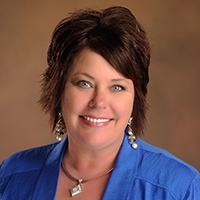Afraid of a Stock Market Correction? Get a Plan
With stocks' record run, some investors can't help but be worried a dip could be coming. A financial strategy can help you feel more confident.


Lately it seems as if every client or potential client I see asks about the possibility of a looming market correction.
Investors are loving these good times, but they’re smart — they know the market runs in cycles, and the good times can’t last forever.
The markets keep hitting record highs. We’re in the second-longest bull run in history. And yet there’s uncertainty, too, globally and in this country with our new president.
From just $107.88 $24.99 for Kiplinger Personal Finance
Become a smarter, better informed investor. Subscribe from just $107.88 $24.99, plus get up to 4 Special Issues

Sign up for Kiplinger’s Free Newsletters
Profit and prosper with the best of expert advice on investing, taxes, retirement, personal finance and more - straight to your e-mail.
Profit and prosper with the best of expert advice - straight to your e-mail.
When people ask if a correction is coming and what they should do to prepare, my answer for most is: Stay the course.
Whether you’re still working or already retired, consistency pays off. Especially in uncertain times, when a market correction is on many people’s minds, it may be best to stick to your plan. If you don’t, if you overreact, you could end up making financial decisions that may set you back in your strategy.
Of course, if you’re worried that the plan you have in place is not the best, that’s a different conversation. Then it may make sense to make some changes. If that’s the case, here are a few steps to consider:
1. Get professional advice.
Perhaps you’ve been handling things just fine on your own with your 401(k) or 403(b). As you near retirement, however, it’s time to speak to a specialist who can help you take the focus from accumulation and growth and put it on income planning and asset protection.
Many financial professionals will consult with a potential client once or twice with no obligation, so you can get a feel for whether you’re a good fit. You should ask for an analysis to see if there are any redundancies in your current portfolio, if you are truly diversified and if you are paying any unnecessary fees.
You also should talk about risk — how much you can stomach emotionally, how much you can afford and how much is in your current portfolio. Your financial professional can use a program like Riskalyze to help assess and align your risk. That is especially important if you’re anticipating a market downturn and might be tempted to make trades based on your anxiety.
2. Set up a retirement blueprint.
A lot of people have piles of statements from different accounts, but that doesn’t always mean they have a strategy in place. In retirement, you need a detailed plan for your money — and that plan should help give you more confidence that you’ll be OK.
People tend to get out of the market when it’s down, and by then they may have already lost money. Then they may get back in when it’s coming around again … but by then, most of the gains could already have been made. That bad timing can be very costly.
3. Know the difference between a pullback, a correction and a bear market.
Everyone is talking about a coming correction, but what exactly does that mean? It isn’t the same as a pullback — typically defined as a short-term decline of 5% to 9% from a recent high. And it isn’t as menacing as a bear market, which is a downturn of 20% or more that can last for months.
A correction is the middle ground — a 10% to 19% drop from recent highs. It’s a little scarier than a pullback, but it’s still temporary. It is sometimes an indicator that we’re going to have a bear market, but that’s not always the case. It can be an opportunity for investors hoping to get discounted prices. Unfortunately, it’s also when some people go wrong based on their emotions. Fight the instinct to flee.
4. Diversify.
The old-school equation for diversification is a 60-40 split between equities and bonds — and that’s not always a bad scenario. But these days, there are so many more options, both for protection and growth.
If interest rates continue to rise, it could have a ripple effect, and the bond market likely will suffer. In retirement, that may not help you as an inflation hedge, so it’s important to look at alternatives such as annuities. I know, “annuity” is a dirty word to some financial professionals — but that could be because they either can’t sell them or they don’t really understand how they work. It’s unfair to broad-brush them all with the same bad rap. A good annuity can be a valuable piece of your plan. It’s a long-term financial vehicle — the insurance company gets to use your money for a pre-determined number of years — but that’s not a bad thing for someone who is 60 years old. Annuities aren’t for everyone, though, so ask your financial professional if they would be a fit for you.
If you’re ready to make a change or create your first real retirement plan, find a financial professional who is focused on informing and enabling you, not selling you products. And be careful about what you read and hear. It’s good to have information, but what you see in the media isn’t necessarily tailored to your specific needs.
An experienced and knowledgeable financial professional with a retirement focus can help equip you to work toward your goals — while considering uncertainty in the market.
Kim Franke-Folstad contributed to this article.
Profit and prosper with the best of Kiplinger's advice on investing, taxes, retirement, personal finance and much more. Delivered daily. Enter your email in the box and click Sign Me Up.

Christy Smith, an Investment Adviser Representative and insurance professional, is the founder of Presley Wealth Management, which focuses on retirement planning and insurance. She co-hosts a weekly radio show. She is married and has three children.
Investment advisory services offered through AE Wealth Management, LLC (AEWM). AEWM and Presley Group and Presley Wealth Management are not affiliated entities. Investing involves risk, including the potential loss of principal. Insurance and annuity product guarantees are backed by the financial strength and claims-paying ability of the issuing insurance company.
-
 Your Guide to Buying Art Online
Your Guide to Buying Art OnlineFrom virtual galleries to social media platforms, the internet offers plenty of places to shop for paintings, sculptures and other artwork without breaking the bank.
-
 Samsung Galaxy S25 Ultra for $4.99 a Month: A Closer Look at Verizon’s Deal
Samsung Galaxy S25 Ultra for $4.99 a Month: A Closer Look at Verizon’s DealVerizon’s aggressive pricing makes Samsung’s top-tier phone tempting, but the real cost depends on your plan and how long you stay.
-
 I'm 59 with $1.7 million saved and lost my job. Should I retire?
I'm 59 with $1.7 million saved and lost my job. Should I retire?We asked professional wealth planners for advice.
-
 A Wealth Adviser Explains: 4 Times I'd Give the Green Light for a Roth Conversion (and 4 Times I'd Say It's a No-Go)
A Wealth Adviser Explains: 4 Times I'd Give the Green Light for a Roth Conversion (and 4 Times I'd Say It's a No-Go)Roth conversions should never be done on a whim — they're a product of careful timing and long-term tax considerations. So how can you tell whether to go ahead?
-
 A 4-Step Anxiety-Reducing Retirement Road Map, From a Financial Adviser
A 4-Step Anxiety-Reducing Retirement Road Map, From a Financial AdviserThis helpful process covers everything from assessing your current finances and risks to implementing and managing your personalized retirement income plan.
-
 The $183,000 RMD Shock: Why Roth Conversions in Your 70s Can Be Risky
The $183,000 RMD Shock: Why Roth Conversions in Your 70s Can Be RiskyConverting retirement funds to a Roth is a smart strategy for many, but the older you are, the less time you have to recover the tax bite from the conversion.
-
 A Financial Pro Breaks Retirement Planning Into 5 Manageable Pieces
A Financial Pro Breaks Retirement Planning Into 5 Manageable PiecesThis retirement plan focuses on five key areas — income generation, tax management, asset withdrawals, planning for big expenses and health care, and legacy.
-
 4 Financial To-Dos to Finish 2025 Strong and Start 2026 on Solid Ground
4 Financial To-Dos to Finish 2025 Strong and Start 2026 on Solid GroundDon't overlook these important year-end check-ins. Missed opportunities and avoidable mistakes could end up costing you if you're not paying attention.
-
 Are You Putting Yourself Last? The Cost Could Be Your Retirement Security
Are You Putting Yourself Last? The Cost Could Be Your Retirement SecurityIf you're part of the sandwich generation, it's critical that you don't let the needs of your aging parents come at the expense of your future.
-
 I'm an Insurance Pro: It's Time to Prepare for Natural Disasters Like They Could Happen to You
I'm an Insurance Pro: It's Time to Prepare for Natural Disasters Like They Could Happen to YouYou can no longer have the mindset that "that won't happen here." Because it absolutely could. As we head into 2026, consider making a disaster plan.
-
 The Future of Philanthropy Is Female: How Women Will Lead a New Era in Charitable Giving
The Future of Philanthropy Is Female: How Women Will Lead a New Era in Charitable GivingWomen will soon be in charge of trillions in charitable capital, through divorce, inheritance and their own investments. Here's how to use your share for good.